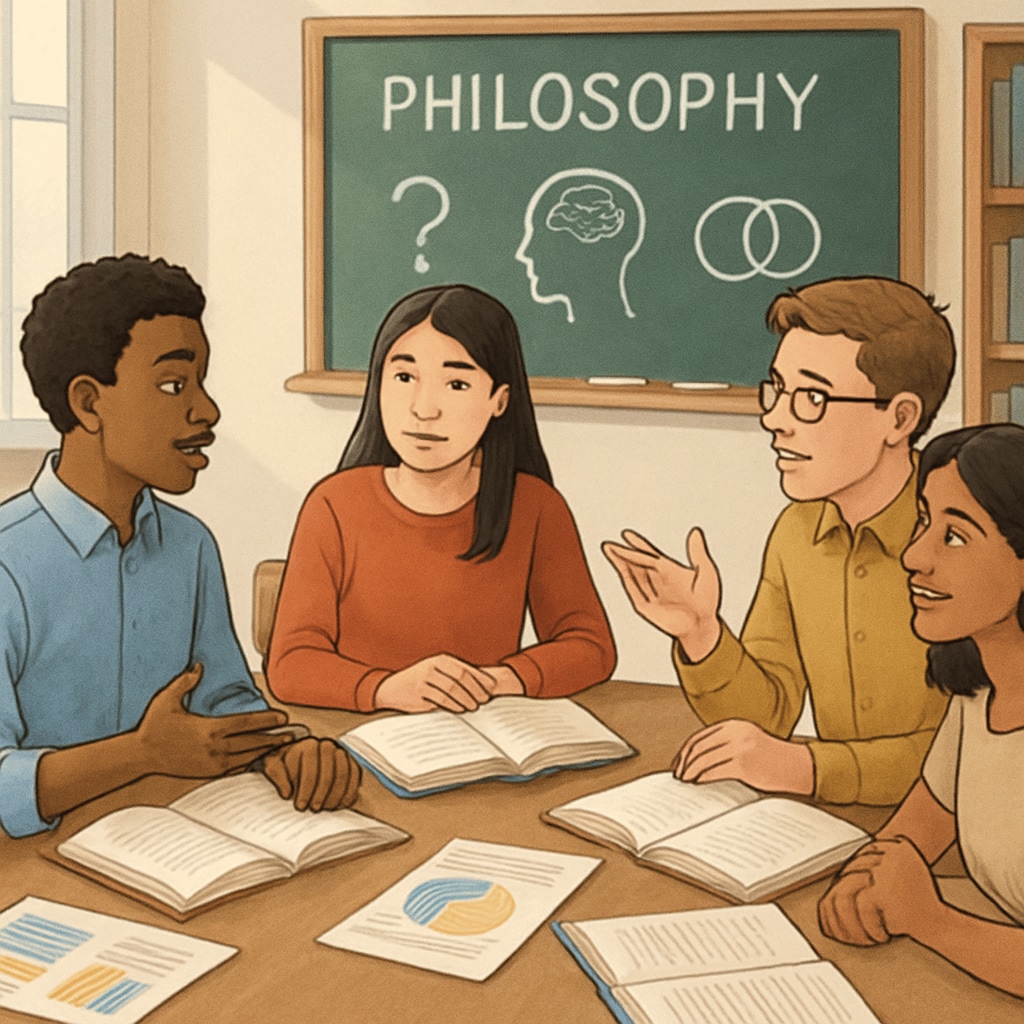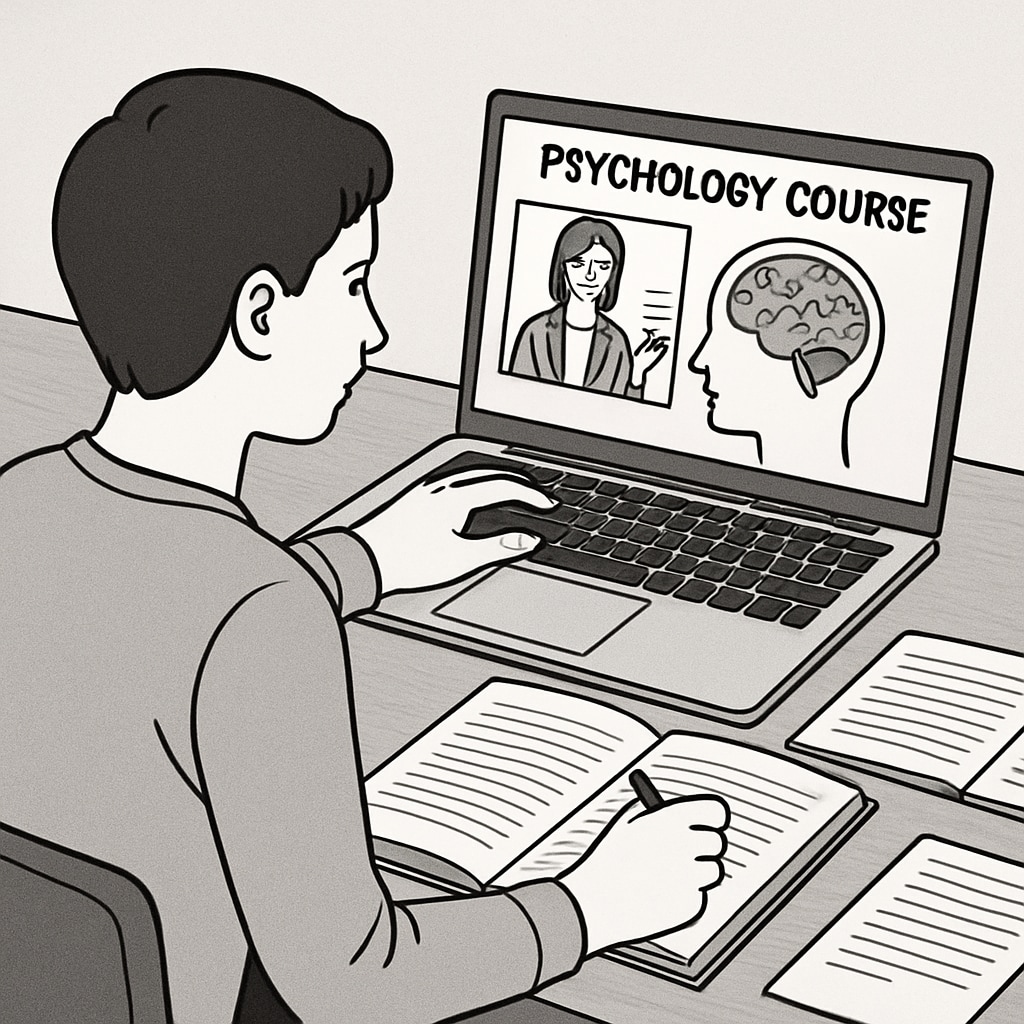Psychology, philosophy, and the pursuit of knowledge are vital for students seeking to expand their critical thinking and self-awareness. While these subjects are often not emphasized in K12 curricula, they offer unique tools for understanding the world and our place in it. For students interested in exploring psychology and philosophy beyond their core classes, this article provides a roadmap to begin their journey and highlights the value of these disciplines as lifelong learning pursuits.
Why Introduce Psychology and Philosophy Early?
Psychology helps us understand human behavior, emotions, and mental processes, while philosophy teaches us to question assumptions, explore ethical dilemmas, and build logical arguments. Together, these fields foster critical thinking, creativity, and self-reflection—skills that are increasingly valuable in a rapidly changing world.
For K12 students, studying psychology and philosophy can:
- Encourage curiosity and open-mindedness.
- Develop problem-solving and reasoning skills.
- Enhance emotional intelligence and empathy.
- Provide a foundation for academic and personal growth.
By introducing these subjects at an early stage, students can cultivate habits of inquiry and thoughtful analysis that will serve them throughout their lives.

How to Start Learning Psychology and Philosophy as a Beginner
Starting with psychology and philosophy may seem daunting, but there are many accessible resources and strategies to make the process enjoyable. Here are a few steps to get started:
1. Begin with Books and Articles
Classic texts and beginner-friendly books are excellent starting points. For psychology, consider books like Psychology: The Science of Mind and Behavior by Nigel Holt or Quiet: The Power of Introverts by Susan Cain. In philosophy, accessible works include Sophie’s World by Jostein Gaarder and The Philosophy Book by DK.
2. Use Online Courses and Videos
Platforms such as Coursera and Khan Academy offer free or affordable introductory courses on psychology and philosophy. These courses are designed for learners of all levels and include engaging video lectures and quizzes.
3. Engage in Practical Activities
Apply what you learn by participating in debates, journaling your thoughts, or analyzing real-life scenarios. For example, you can explore psychological concepts like memory by keeping a dream journal or discuss ethical dilemmas during family or classroom discussions.
4. Join Online Forums and Communities
Engage with others who share your interests by joining communities like Reddit’s r/philosophy or r/psychology. Discussions in these forums often provide new perspectives and valuable insights.

Recommended Resources for K12 Students
Here’s a curated list of resources to kickstart your psychology and philosophy journey:
- Books: Thinking, Fast and Slow by Daniel Kahneman; The Art of Thinking Clearly by Rolf Dobelli; The Little Book of Philosophy by Rachel Poulton.
- Websites: Stanford Encyclopedia of Philosophy; Simply Psychology.
- Podcasts: “The Psychology Podcast” by Dr. Scott Barry Kaufman; “Philosophize This!” by Stephen West.
- Apps: “Headspace” (mindfulness and psychology); “Blinkist” (summarized philosophy and psychology books).
These resources are designed to be beginner-friendly, making them perfect for K12 students exploring these subjects in their free time.
The Long-Term Benefits of Studying Psychology and Philosophy
The benefits of engaging with psychology and philosophy extend far beyond academic performance. These disciplines encourage lifelong habits of reflection, empathy, and thoughtful decision-making. For example, understanding psychological biases can help students make better choices, while philosophical inquiry can guide them in navigating complex moral decisions.
As a result, students who begin studying these fields early are better prepared to face future challenges with resilience and insight.
Whether you’re a student, parent, or educator, introducing psychology and philosophy as extracurricular pursuits can have a profound impact on intellectual and personal development.
In conclusion: Psychology and philosophy offer unique tools for understanding ourselves and the world around us. By starting early, K12 students can build a strong foundation for lifelong learning and critical thinking. With the right resources and guidance, exploring these subjects can be both fun and rewarding.


